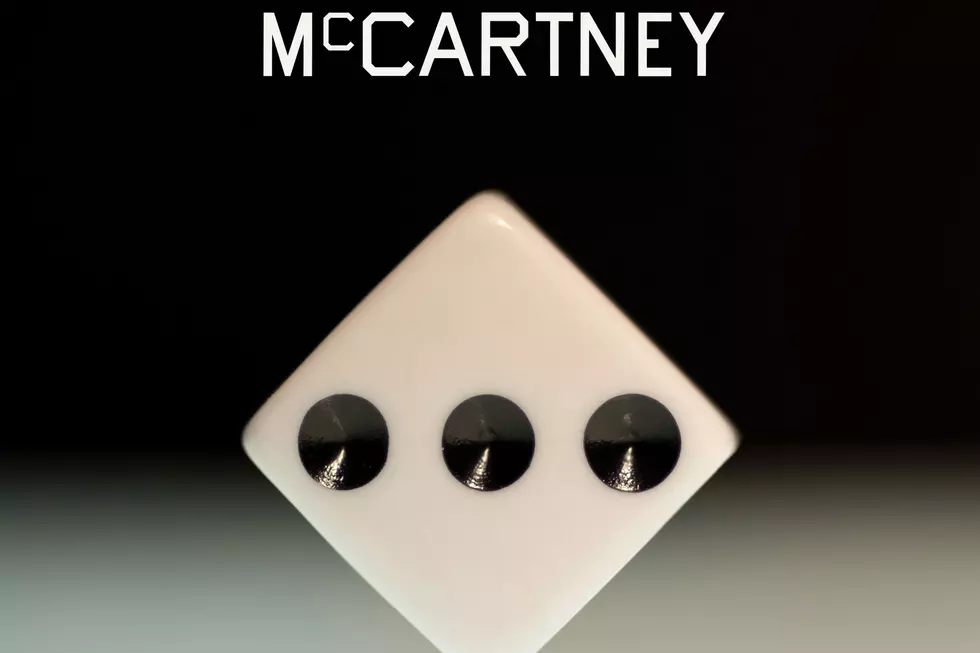
Paul McCartney, ‘McCartney III': Album Review
Paul McCartney's experimental streak goes way back. He played around with words, sounds and concepts with the Beatles and then launched his solo career with a self-titled album in 1970 that took his experiments to a more personal space. Fed up with the collaborative group format, at least for the time being, the chart-topping McCartney was made solely as a one-man-band project.
Ten years, and a different band, later, he followed it up with another totally solo record, McCartney II, this time indulging in his favorite new instrument: the synthesizer. In between and after those two records, he toyed with his ambitions – from 1971's Ram, a record made with wife Linda that included "Uncle Albert/Admiral Halsey," easily one of the weirdest songs to ever hit No. 1, to 2018's Egypt Station, an ambitious work that became McCartney's first No. 1 album in 36 years. Then there are the various classical, electronic and Fireman albums he's made over the years.
So it's not all that surprising McCartney is revisiting the DIY spirit of the McCartney records on a third outing or that the album appears, like its two predecessors, at the start of a new decade. On one hand, all these LPs mark the beginning of a new chapter in his life; on the other hand, he needed something to do with his downtime in each case. McCartney III, specifically, is the product of the coronavirus lockdown.
And like those earlier albums, this third solo record won't be as fondly remembered as Ram, Band on the Run or even 2005's Chaos and Creation in the Backyard. But it's no Give My Regards to Broad Street either.
The opening "Long Tailed Winter Bird" is essentially five minutes of McCartney fingerpicking a guitar over a basic rock foundation that edges near jam territory as he chimes in with "Do you miss me?" from time to time. He immediately follows that with the fuller "Find My Way," which sounds like indie-rock filtered through his more traditional instincts.
McCartney III is like that, jumping from one style to another while never really settling on a theme or groove. There are love songs, throwback rockers and one-man call-and-response goofs like "Lavatory Lil" that sound like McCartney is having a ball – at least for a brief part of the hellish year that inspired the record.
He even gets to work out some aggression on "Slidin'," a "Helter Skelter"-type rocker that springboards from a simple riff and eventually pulls everything else, including a tough McCartney vocal, into its sludgy vortex. And then that moves straight into "The Kiss of Venus," the album's airiest track, an acoustic, bucolic moment that provides another view of his downtime.
The melodic motif from "Long Tailed Winter Bird" repeats itself in the album's closer, "Winter Bird – When Winter Comes," which sorta sums up McCartney III in three folksy minutes that also happen to recall the bridges between McCartney and Ram and then Ram and Wings' first album, Wild Life. McCartney checks off a to-do list – "Must fix the fence" – while surveying the lambs, chickens and foxes around him. It's a serene and hopeful end to both the album and year.
And in the end, it's both a substantial and tossed-off work, begging not to be taken too seriously while also categorizing itself as a personal statement, just like McCartney and McCartney II, by an artist in transition. But the challenges in this work are less complicated and abrasive; getting reflective on a farm during one of the most tumultuous years any of us will ever live through will do that. In typical McCartney fashion, he handles it with ease.
Ranking the Rest of Paul McCartney's Albums
See Paul McCartney in Rock’s Craziest Conspiracy Theories
More From Classic Rock Q107










